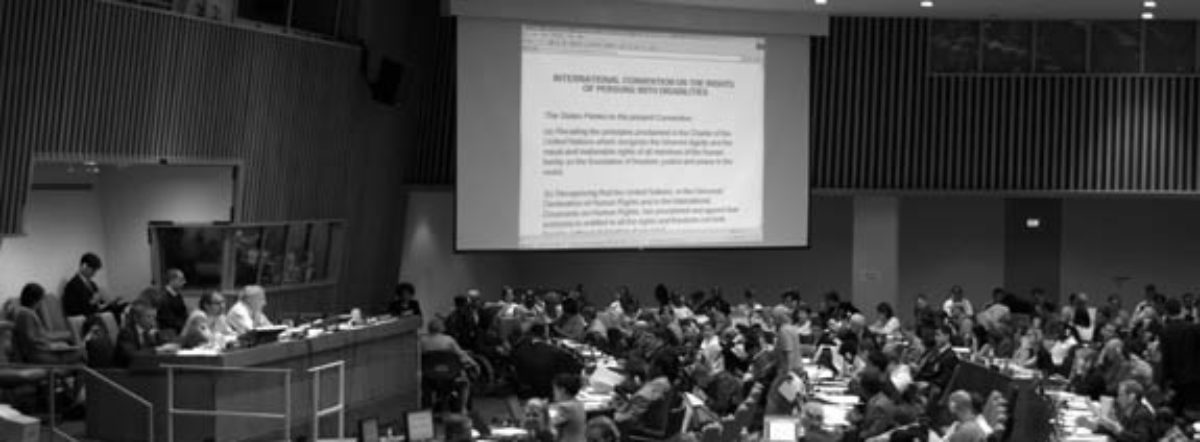This is a new page based on work from 2019-2022 and beyond. It should be read as an updating of the segment on Articles 19 and 25, which begins to answer the questions raised in that segment and goes beyond them.
It also recapitulates all the substantive issues addressed in this site – forced psychiatry as torture, reparations, legal capacity and liberty – taking them to a comprehensive level and envisioning a platform for real social change.
- What does it mean to envision and implement a community that welcomes us in all our diversity? How do we envision supports that we may need for a period of time or continually in relation to difficult emotions or parts of ourselves, outside of mental health discourse and practices?
- What should be the place of the mental health system in a future inclusive world, given its perpetration of profound and extensive human rights violations that have not yet ended? Do we seek anything from the mental health system or simply want its removal from our lives?
- How do we really begin, as a global community and each society and state, to end the atrocity of psychiatric violence and all institutionalization once and for all? What must we do to confront the harms in its full extent and create the conditions for social and personal healing and justice?
The CRPD Committee adopted Guidelines on Deinstitutionalization on September 9, 2022, developed in a lengthy process (for UN treaty bodies) that had unprecedented wide and deep involvement of people with disabilities and their organizations, through online regional consultations and the work of a Global Coalition on Deinstitutionalization that supported the Committee in drafting the document. CHRUSP as well as I (Tina Minkowitz) have been closely involved in this process, including Tina’s contributions as external reviewer for the Coalition.
This document is truly revolutionary in some respects and embraces much of our survivor agenda for the Convention, including the de-medicalization of crisis, obligation on states to provide support for dealing with distress and unusual perceptions outside the health system, reparations, and extensive limitations on the role of mental health service providers in deinstitutionalization policy and in the provision of new services.
Materials in this segment address the Guidelines on Deinstitutionalization, reparations, and de-medicalizing approaches to support.
CRPD Guidelines on Deinstitutionalization (2022)*
Minkowitz, Deinstitutionalization as Reparative Justice: A Commentary on the DI Guidelines (2024)*
Minkowitz, A Reparations Approach to Deinstitutionalization (2021)
CHRUSP/TCI/Validity webinar on Remedy and Reparation for Deinstitutionalization, side event to CRPD Conference on States Parties (2022)* – EN, ES, ZH, FR
Minkowitz, Reimagining Crisis Support: Matrix, Roadmap and Policy (2021)* (free download available)
Minkowitz, Speech in CRPD Committee’s Panel on Deinstitutionalization
Questionnaire for Survivors of Psychiatric Institutionalization (2022)
Nev Jones, Marie Brown, and Shannon Pagdon, Rethink Psychosis project
Mad in America Town Hall – Supporting Extreme States, Dissociation and Experiences Labeled as Psychosis (recording)
Reparative Justice in the United States: Human Rights in Practice (recording available shortly) – extremely helpful as creative inspiration on reparations movements in the US primarily on enslavement and racial justice
Additional resource:
Webinar on Highlights of the DI Guidelines – a close reading, may be helpful as orientation to this complex document:
**
Questions to consider:
What is your relationship to institutionalization (including forced psychiatry)? Are you a survivor (or are you still under institutionalization and/or forced treatment)? Have you institutionalized others or colluded in their institutionalization? Were you affected by the institutionalization of someone close to you?
Are the DI Guidelines useful as a template and a set of obligations for reversing and repairing the harms done by deinstitutionalization and creating communities that welcome our diversity?
How can make the Guidelines our own by applying them in our countries, our local communities, our lives?
What needs to be done to put them into practice – by doing the practice of repair and justice, changing our communities, changing the state’s laws and policies?
What do we see as need support systems and services for ourselves and our communities?
What is missing from the Guidelines and how might that be brought into our work and practice, including deinstitutionalization and reparations processes?
Can the harms of institutionalization be repaired? What does this mean?
What is the role of the state in reparations for institutionalization? Is the state itself a perpetrator? How can we make sure reparations are done properly to achieve real transformation?
What is role of families, friendship networks, and communities in reparative justice?
How can survivors both lead reparations and deinstitutionalization work, and also do our own healing/repair/justice-seeking? As both protagonists and beneficiaries, how do we balance these roles? Do we need support, accommodations, recognition for these needs? (If so, what would that look like?)
How might you use the DI Guidelines and other materials on this page in advocacy for what is most important to you as a survivor, person with psychosocial disability, mad person, or ally?
**
(c) Tina Minkowitz 2022 – 2024
